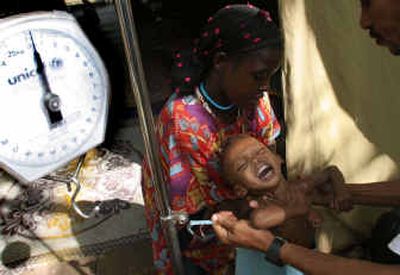Moms face harsh conditions

ADDIS ABABA, Ethiopia – Africa is the worst continent to be a mother or child, and Mali is one of the worst countries, where one in eight children will die before seeing a first birthday, according to a study published Tuesday.
The State of the World’s Mothers 2005, a report by Save the Children USA, studied 110 countries and details health and educational opportunities for mothers and their children. “Conditions for children and mothers in the bottom-ranked countries are devastating,” said Charles MacCormack, president of Save the Children. “Many children are fortunate just to survive the first five years of life and have a chance to go to school.”
In Burkina Faso, fewer than one in 10 women can read and write. In Ethiopia, just 25 percent of the population has access to clean water.
Scandinavian countries sweep the top rankings for the best places to be a mother, while countries in sub-Saharan Africa dominate the bottom tier, the report said. Out of the 10 worst countries to be a mother or child, seven are in Africa. In Sweden, which tops the list, nearly all women are literate. In Ethiopia, only 34 percent of women are literate. A mother in Ethiopia is 37 times more likely to see her child die in the first year of life than a mother in Sweden.
The United States ranked 11th best.
Save the Children argues that education, family planning and trained birth attendants are key in boosting child survival and well-being. Effective contraception use can save thousands of lives, it concluded.
In the United States, 71 percent of women use modern birth control, one in 2,500 mothers dies in childbirth and seven out of 1,000 infants die before they are 1. In Mali, where 6 percent of women use birth control, one in 10 mothers dies in childbirth, and one in eight infants dies before reaching age 1.
“The Mothers’ Index clearly shows that the quality of children’s lives is inextricably linked to the health and education of their mothers,” MacCormack said. “In countries where mothers fare well, children fare well; in countries where mothers do poorly, children do poorly.”
The index is based on six factors:
•Risk of maternal mortality.
•Women using modern contraception.
•Births attended by trained personnel.
•Pregnant women with anemia.
•Adult female literacy rate.
•Participation in national government.
The report also analyzed infant mortality rates, gross primary enrollment rate, people with access to safe water, and children under 5 suffering from nutritional wasting.